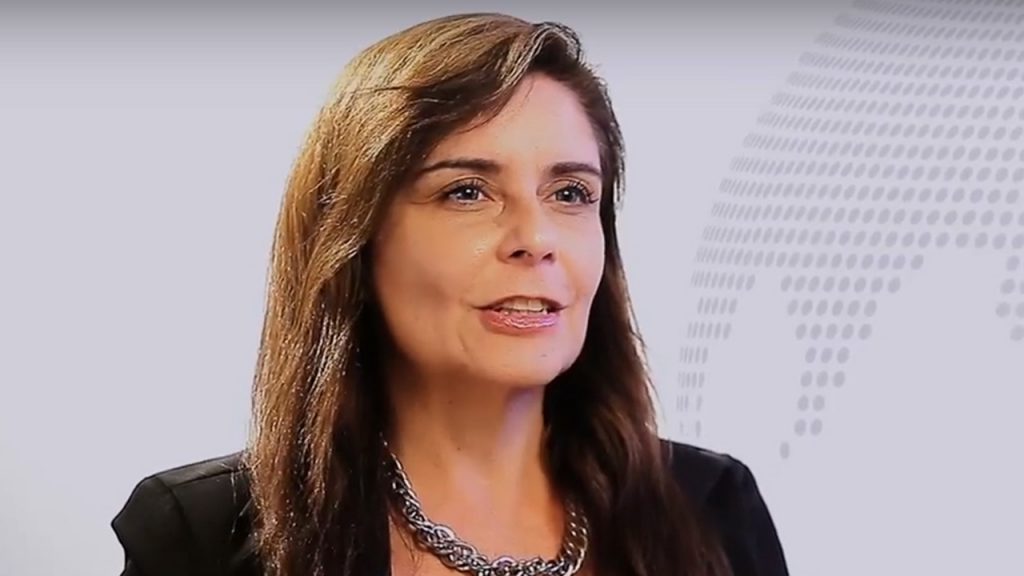Ana Cristina Rosa is the founder and leader of the Dipteron team. Dutch and originally from Brazil, she is a lawyer with background and knowledge in the space sector and work experience in international organisations. Since 2008 she has also been working as an observer legal advisor of the Brazilian delegation during the Legal Subcommittee meetings of the United Nations Committee on the Peaceful Use of Outer Space (COPUOS) in Vienna. Apart from this, she is expert member of the Brazilian Association of Air and Space Law and regularly publishes articles in the space sector.
With her startup Dipteron, she plans to use space technologies to help combat infectious diseases transmitted by Aedes mosquitos by identifying high-risk areas and mitigating the risk of infection. We spoke to Ana a little bit about her startup and how she is using space data in this way.
Spaceoneers: What is the value proposition of your company?
Ana Cristina Rosa: Dipteron is an application for detecting Aedes mosquito risks areas. Basically the application will mitigate the risk of encountering an infection by Zika, Dengue and Chikungunya viruses caused diseases transmitted by the bite of this mosquito. It can help international business travellers against contracting the diseases; it also saves time by supporting traveller organisation in risky areas. The app can also save money by preventing companies and organisations from having their employees on sick leave after getting infected while operating in risk areas. Plus, it can save lives by reducing the risk of contracting a potentially fatal disease.
Spaceoneers: So, this is a mobile app?
Ana Cristina Rosa: Yes, initially we are building a mobile application (app) for Android and iPhone using satellite data and ground data obtained from the health offices of the cities and regions where the mosquito is breeding. The app provides geographically distributed warnings about areas with high, medium and low risk of Aedes breeding sites, besides information regarding hotels, hospitals and diseases symptoms. We also intend to extent these services for web services.
Spaceoneers: Why an app?
Ana Cristina Rosa: Travelling has become a fully web-based experience with customers and suppliers relying on data streams coming from different sources and places. It is a growing market with a lot of opportunities for new players provided mobile applications are able to address specific customer needs with a smart and simple product offering. This environment is ideal for the launching of the Dipteron app since it does address a very important need for international business travellers (risk mitigation of disease contagion) and companies/organisations (saves money by preventing their employees are unable to work after getting infected while operating on risk areas).

Spaceoneers: What makes it an innovative application?
Ana Cristina Rosa: At present there are only a few apps dedicated to the protection against Aedes mosquitoes but Dipteron is the only one combining satellite data, ground data and proven scientific methods. In addition, there is no app in the market which is addressing travellers by giving precisely the localisation of areas where the users can be bitten and potentially be affected by these diseases.
Spaceoneers: What specific data do you gather and how does it relate to space?
Ana Cristina Rosa: The Zika, Dengue and Chikungunya are vector-borne viral diseases transmitted by the bite of Aedes mosquito (Aedes aegypti and Aedes albopictus). The mosquito’s success to survive easily and its potential to transmit viruses are highly dependent on environmental conditions, especially climatic factors and local cultural practices. And climate factors such as temperature, precipitation, and humidity can be evaluated from the remote sensing satellite data integrated with meteo station data. We combine these satellite data with further ground data (e.g. epidemiological data and demographic information) from the Ministries of Health from the different countries. From this we then create risk maps for the areas. For a given position we can tell you the associated risk.
Spaceoneers: What would you say are the biggest challenges to this kind of work?
Ana Cristina Rosa: As these vector viral diseases are found at global level, some affected countries perhaps do not have detailed ground data. Hence we use satellite data which are covering the global like the data from the European Sentinel satellites, as well as from NASA satellites or other remote sensing programmes. So, the biggest challenge for now is to get reliable ground data.
Spaceoneers: How are you motivated to overcome these types of challenges? What drives you to do this?
Ana Cristina Rosa: For me, I see huge public health problems around the world and I can see more and more that the related circumstances are terrible. I believe these applications can help solving part of this problem. At the moment the Dipteron application has been developed for international business travellers in order to mitigate vector-borne viral diseases but it can be also useful for other customers, e.g., governments, to take control actions to destroy breeding sites to combat the source of these diseases.
Spaceoneers: Who are your main customers and how do you get them behind your idea?
Ana Cristina Rosa: International Business travellers are our primary target. Our main aim is to address the underlying associated to infectious diseases while operating in risk areas (40% of diseases on the planet are transmitted by Aedes mosquitoes). We believe there is a huge market in this area. In 2013, companies and individuals spent over $1 trillion USD on business trips. Despite terrorist threats, political conflicts, growing fear of pandemics as well as divergent economic conditions people keep travelling.
Governments, healthcare institutions, international organisations, mosquito repellent producers are also potential customers for us.
Spaceoneers: How did you get your team together to develop your product and service?
Ana Cristina Rosa: After attending the International Space University (ISU) Space Studies Programme (SSP) in 2014, I realised my desire to be an entrepreneur. I started to think in a project to help the society. I was aware that alone I wouldn’t get anywhere, so I needed people to join me, especially to complement knowledge that is out of my personal background. I developed the idea and it was the winner at SAP-ESA Mobile Application for startups in August 2015. During the last two months we have actually rebuilt the team and Dipteron is now a multicultural team, which includes proven domain experts in the areas of entomology – Carlos Montenegro from Guatemala, spatial statistical analyses, GIS mapping and positioning software – Rogério Thomé from Brazil. We have been developing our Dipteron app platform and preparing for the launching of the app beta version.
In addition, we have started a new development partnership with the general managers Heinrich Paulsen and Dr Markus Neteler from Mundialis GmbH & Co KG, a German company specialised in the field of satellite data processing and geodata management.
Spaceoneers: What kind of technologies and trends do you think are going to drive the biggest changes in your industry over the next years?
Ana Cristina Rosa: I believe that the EU Copernicus programme with its new Sentinel satellites quite enriches existing missions in terms of high temporal Earth observation. The increased resolution along with the open access policy is a door opener for the space industry and especially startups which can now focus on disrupting technologies. We will see way more integration of in situ or crowdsourced data with those coming from space, leading to exciting new applications available to everybody on smartphones. That will be space based information for citizens and decision makers at our fingertips!
Spaceoneers: What important advice would you give to those wanting to startup a company using these space technologies?
Ana Cristina Rosa: I think they need to research how their idea may have an impact. What is needed is more than just a good idea – something that can impact society.
Spaceoneers: What makes you a “spaceoneer”?
Ana Cristina Rosa: I think because I am using space technologies to help solving health related problems and trying to make a difference in the world by combating infectious diseases.

